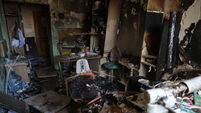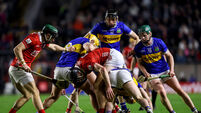Vladimir Putin: Failed liberal and democrat

Russian President Vladimir Putin is angry the Kiev government has for years refused a settlement to allow the breakaway Donetsk and Lugansk regions to return safely to Ukrainian sovereignty.
Picture: Alexei Nikolsky, Kremlin Pool Photo via AP
As president Vladimir Putin’s armed forces steamroll through Eastern Ukraine, what onlookers need to understand is that he views himself as a Russian patriot defending his country’s most vital interests.
From his point of view, Russia’s attack on Ukraine is a war of necessity: Nato’s refusal to halt its expansion towards Russia’s borders having left him no option except to create a buffer zone in Ukraine by force.
















